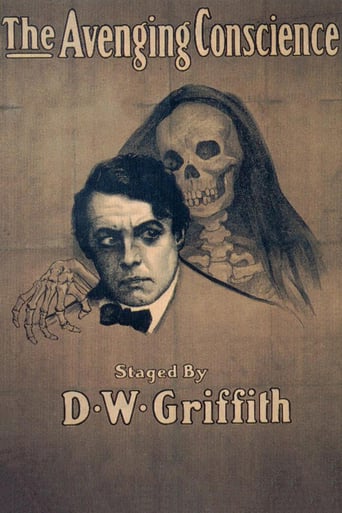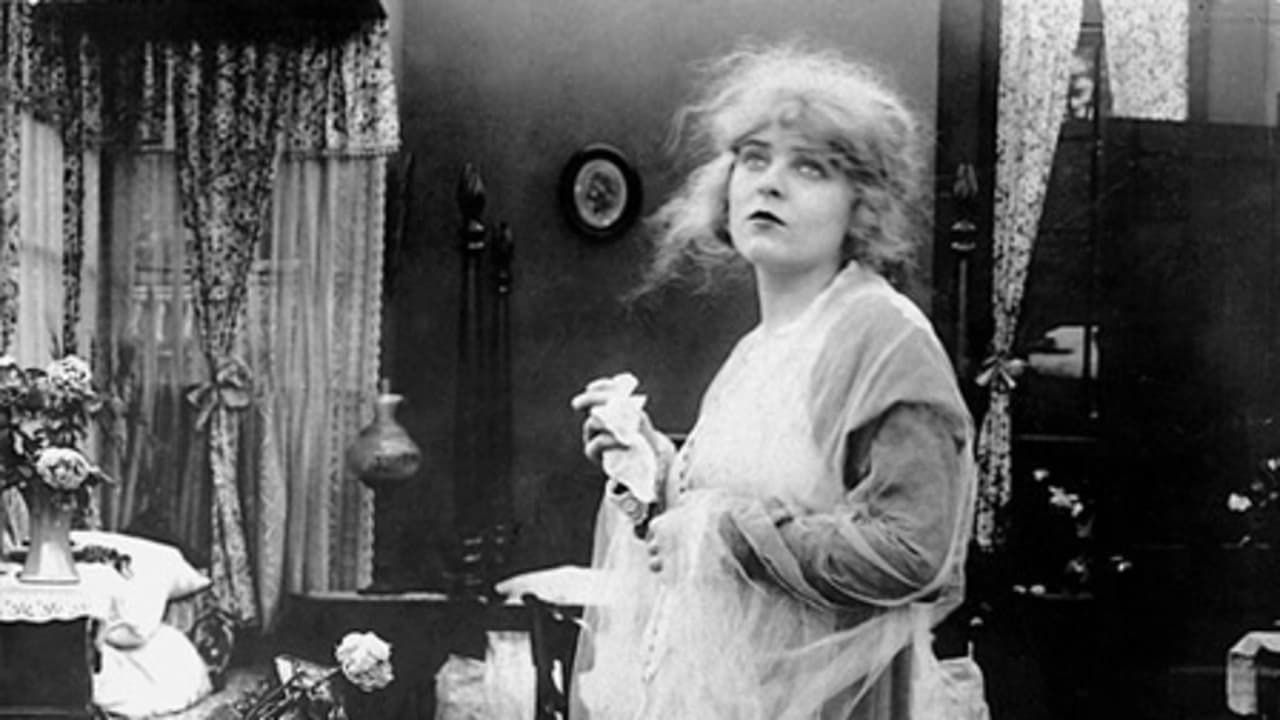Ian
(Flash Review)Would your passion for a woman drive you to commit murder of the person disallowing your hopeful relationship? In this silent film an uncle does not give permission for his nephew to pursue a certain young woman. Will this young man stoop to such measures? While making his decision, many thoughts run through his head. Many of them turn into creative and surreal dream sequences as well as subtle and obvious symbolisms, which seems to me to push the envelope for films of this period. Challenging the audiences to think about the meaning of certain scenes and shots rather than being easily entertained. In addition to the symbolism, many were shot as double negative during some dream sequences scenes. There was also a great soundtrack with some familiar classical numbers. This film is a great example of what made D.W. Griffith so notable.
Michael_Elliott
Avenging Conscience; Thou Shalt Not Kill, The (1914) *** (out of 4)Feature from D.W. Griffith, which he quickly shot before he started filming on The Birth of a Nation. An uncle is constantly putting presure on his nephew (Henry B. Walthall) to spend more time on his work. When the nephew falls in love with a local girl (Blanche Sweet) the uncle demands that they call it off. When the nephew can't think of anything else, he decides the only way to keep the girl is by killing the uncle. This film is based on several Edgar Allan Poe stories with the second half of the film dealing mainly with The Tell-Tale Heart. You can tell this film was quickly made but there's still some nice direction, good performances and G.W. Bitzer's wonderful cinematography. There's some nice scenes dealing with devils and ghouls from Hell as well as a scene of Jesus. The special effects are quite nice for the era as well. Mae Marsh and Ralph Lewis have small parts. Due to the lack of copyright laws at the time, Griffith used all these short Poe stories without any credit being given.
MARIO GAUCI
Poe's psychological story "The Tell-Tale Heart" uneasily receives Griffith's trademark Victorian approach turning the madman anti-hero of the original into a frustrated love-struck milquetoast! The broad gestures typical of Silent-film acting render the proceedings unintentionally comical now, especially where the ghostly apparition of the murdered relative is concerned who, by the way, is fitted with an eye-patch throughout and, yet, no reference whatsoever is made to his all-important "vulture eye"!! Still, the various hallucinations at the climax crude though they may be are reasonably effective. Incidentally, the stilted presentation and moralistic overtones evident here also marked the other Griffith horror effort that I've watched THE SORROWS OF Satan (1926); all I can say is that, in spite of the solid reputation THE AVENGING CONSCIENCE enjoys within the director's canon, personally I was underwhelmed by the film on a preliminary viewing.Other cinematic adaptations of the classic tale I've checked out all of them relatively recently are the interesting 1928 short (viewed on the very same day as the Griffith title), the so-so 1936 British feature-length version and a pretty good animated rendition of it from 1953.
Cineanalyst
The opening scene sets the mood for this eerie and curious Griffith film; a family is in mourning, where the uncle (played by Spottiswoode Aitken) turns towards his infant nephew. Once the boy is a man (played by Henry Walthall), his uncle is still guiding him through life. The conflict begins when the nephew has a love interest (played by Blanche Sweet), which the uncle feels is incompatible with the plan he has set for his nephew.Loosely based on Edgar Allan Poe's "The Tell-Tale Heart", with appropriate takings from Poe's poem "Annabel Lee" to help move the plot, this is the most extrinsic of Griffith's films--neither an epic, nor a quaint romance, for which he is renowned. In most ways, it's more similar to later psychological or expressionist films from Scandinavia and Germany. The slow pacing and use of irises and other methods add to the pang of this psychoanalytic horror. The restrained performances are even more vital, especially Walthall's forceful performance, again displaying his versatility--rarely has a nervous, psychotic breakdown been done better.It's impressive that Griffith succeeded as much as he did in such a foreign genre, especially in his imperfect period before "The Birth of a Nation"; therefore, the flaws are surprisingly few and excusable. Again, Griffith inserts a supplementary romance, or "The Contrast", as he called it; in this movie, it is particularly misplaced, unnecessary and feckless. Perhaps its removal would have allowed for needed development of the uncle. I wonder why he was so frantic and selfish in his vicariousness. Finally, the ending is of what would be one of the more contemptible of such conventions. Griffith slightly recovers, however, with the most queer scene in the film--the Pan fantasy, in a way, reasserts Walthall's character's insanity.


 AD
AD


